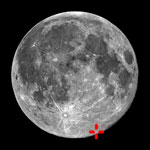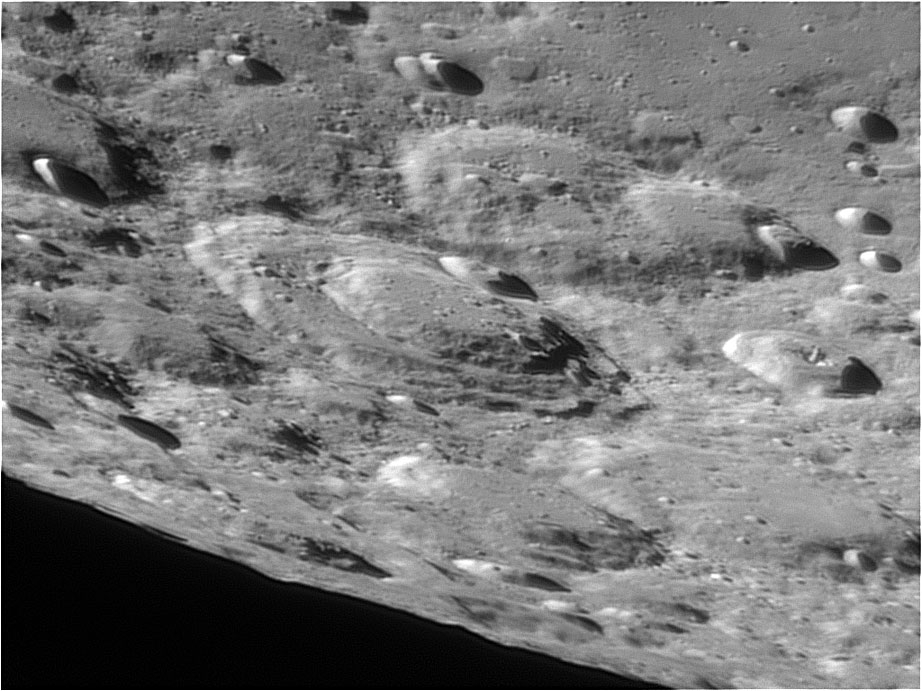|
 Boussingault
est un cratère de 131 km et profond de 3200 m qui se trouve près du limbe
Sud-est de la Lune. En raison de sa position, Boussingault semble fortement
oblong dans la forme à cause de la perspective. Au Sud-ouest on trouve le
cratère à fond plat Boguslawsky (98 km, 3400 m). L'aspect le plus notable de
ce cratère est le grand cratère Boussingault A (72 km) qui se trouve
entièrement à l’intérieur, de sorte qu'il ressemble à une formation à double
paroi. Boussingault K (29 km) est en travers du mur Nord-ouest. Sur le
versant Nord-ouest on trouve la formation triple par recouvrement de cratère
avec Boussingault E (98 km), B (54 km), et C (24 km).
Boussingault
est un cratère de 131 km et profond de 3200 m qui se trouve près du limbe
Sud-est de la Lune. En raison de sa position, Boussingault semble fortement
oblong dans la forme à cause de la perspective. Au Sud-ouest on trouve le
cratère à fond plat Boguslawsky (98 km, 3400 m). L'aspect le plus notable de
ce cratère est le grand cratère Boussingault A (72 km) qui se trouve
entièrement à l’intérieur, de sorte qu'il ressemble à une formation à double
paroi. Boussingault K (29 km) est en travers du mur Nord-ouest. Sur le
versant Nord-ouest on trouve la formation triple par recouvrement de cratère
avec Boussingault E (98 km), B (54 km), et C (24 km).
 (English version,
Wikipedia copyright)
(English version,
Wikipedia copyright)
Boussingault
is a large lunar crater that lies near the rugged southeast limb of the
Moon. Because of its location, Boussingault appears highly oblong in shape
due to foreshortening. To the southwest is the Boguslawsky crater, and
almost attached to the northeast rim is Helmholtz crater. East-southeast of
Boussingault lies the Neumayer crater.
The most
notable aspect of this crater is the large crater that lies entirely within
its outer walls, so that it resembles a double-walled formation. The outer
rim is worn and the 'Boussingault K' crater lies across the northwest rim.
To the northwest is the overlapping triple crater formation of 'Boussingault
E', 'B', and 'C'.
|



